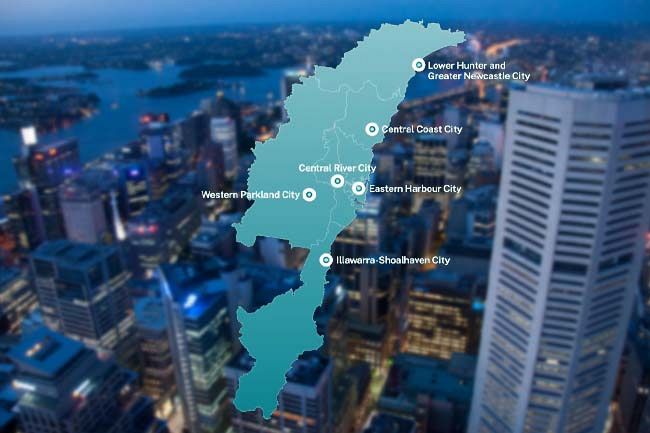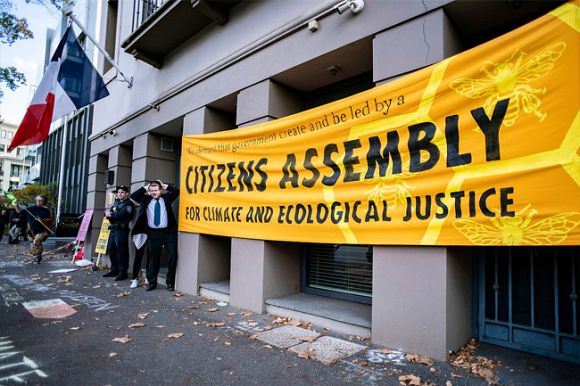A NSW region of six cities has joined together to accelerate economic growth and lead the way for smart city development in Australia, writes Paul Budde.
BACK IN 2015 and 2016, I took a number of smart city initiatives aimed at lifting the issue of smart cities to the senior levels of the dozen or so councils I was working with. What had been the case in previous years was that the concept of smart cities (enhancing liveability, social structures and economic development with the assistance of new technologies) was taken up by smart people within the councils, but they often failed to put a sound strategy behind the initiatives.
I called that previous period one of hundreds of smart city projects that failed because there was no strategy behind it to proceed after the project was successfully completed.
What had become clear was that you need to have the mayor on board on the political side in order to discuss the concept with the citizens. You also need to have the town clerk on board to align the smart city concept across the many bureaucratic silos within the council.
A key reason why this concept requires leadership from the top is that cities increasingly will need to compete globally for the best talent, the best citizens, the best companies and the best investors. So you need to lift your city to the next level in order to make it attractive to all those parties.
For the Australian Smart City Association (ASCA), I organised at their conference in Adelaide a meeting for the mayors, which was hosted by the Lord Mayor of Adelaide. And on behalf of the Global Smart City and Community Coalition (GSC3), I organised an Australian-Netherlands Smart City Summit in Sydney, attended by Queen Máxima of the Netherlands. Here we had the mayors present of six cities, indicating their understanding of global competitiveness and showing their leadership in developing holistic smart city strategies.
So, this was a great time when we saw some serious strategic approaches towards the development of smart cities. The cities involved have consistently been the leaders in Australia and they include Newcastle, Lake Macquarie, Sydney, Ipswich, Sunshine Coast, Moreton Bay, Canberra, Bendigo and Adelaide.
Having the attention of the mayors, I proposed to the mayors of Newcastle and Lake Macquarie to take an initiative to start a discussion with Sydney to develop a smart city corridor. This is also the time when the Greater Sydney Commission was taking a leadership role in embracing the smart city concept.
With GSC3, we looked at the Randstad Region in the Netherlands where the cities of Amsterdam, Rotterdam, The Hague and Utrecht started to work together several decades ago. They represent a population of 8 million people. Within the smart city concept, each city focuses on a particular element (health, port, trade, governance) and in that way, taps into the experience and knowledge of the whole group rather than duplicating developments. We compared the Australian cities to this Dutch region as they have a similar population to the three cities in NSW we were looking at.
While nothing eventuated at that time, I was very pleased to read that six cities have now formed the Six Cities Region aimed to develop an integrated network of interconnected cities. They include Lower Hunter and Greater Newcastle City, Central Coast City, Illawarra-Shoalhaven City, Western Parkland City, Central River City and Eastern Harbour City.
This region represents a population of 6 million growing to 8 million by 2040. Some of you might have never heard of the last three cities, but they are the three regions of Greater Sydney. So going back to my suggestion of 2016, the difference is that Wollongong had been added, which of course is great. Together, these six cities have set up the Greater Cities Commission, very much along the lines of the successful Greater Sydney Commission.
It did not come as a surprise to me that these six cities took the lead in this new regional initiative as they have been among the prominent smart city leaders in the country. They have the right structures in place to move forwards now jointly.
A very important step is now also to make sure that the group not only takes their citizens with them but puts them centrally in the execution.
As mentioned in an earlier article, apart from my work to lift the profile of the smart city concept to the leadership, at the same time I promote the concept of “smart people”. Yes, you need leadership from the cities and you need technology as an enabler, but in the end, it is all about the benefits to the citizens. In order to provide those benefits, you need to know what these people want.
The involvement of citizen groups, as I have mentioned in my earlier article, who have a vested interest in the outcomes around certain problems or opportunities is the most important element of a successful smart city outcome.
Paul Budde is an Independent Australia columnist and managing director of Paul Budde Consulting, an independent telecommunications research and consultancy organisation. You can follow Paul on Twitter @PaulBudde.
 This work is licensed under a Creative Commons Attribution-NonCommercial-NoDerivs 3.0 Australia License
This work is licensed under a Creative Commons Attribution-NonCommercial-NoDerivs 3.0 Australia License
Support independent journalism Subscribe to IA.














